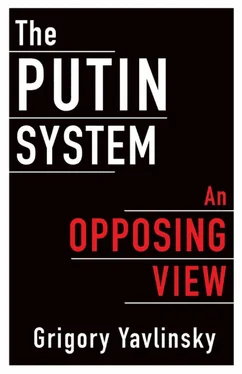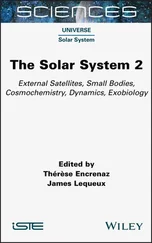Naturally, in those instances when an authoritarian system uses the procedure of elections (whether because it has become an established tradition, to gain additional legitimacy, or for other reasons), the elections’ main feature, and at the same time the precondition for their continued use, is the predictability of the outcome. This is achieved through controlling the electoral process, the tallying of the votes, and the official determination of their results. Controlling these processes means having the power to interfere with the process, but such interference is not the only effective way to achieve the needed results and, under certain conditions, may not be used in its crude and explicit forms, such as outright election fraud. Given that genuine competition with an unpredictable outcome already indicates that the system itself is competition-based, which is antithetical to authoritarian rule, the ruling circle responds to every decrease in the predictability of an outcome either by perfecting its methods of control or by abandoning the use of elections altogether.
This principle common to authoritarian systems also operates within those frameworks that formally allow for the existence of multiple political parties. In reality, such regimes allocate a certain number of slots within the system (mainly in its representative bodies) to parties that are not formally included in the vertical hierarchy of power. In exchange for agreeing to play by the system’s rules, these parties obtain some rather meager share of political resources, such as occasional opportunities to influence some secondary aspects of government decisions, and some perks for the leadership of these parties, like those enjoyed by high-ranking officials (welfare packages, special pension arrangements, an indulgent attitude toward conflicts of interest, and the like). Also, as part of the establishment they can count on lifelong employment in a safe and privileged position.
Essentially, all these features have been replicated within the political system that has taken shape in recent decades in Russia. Although the means of filling vacancies in the power system, at every level and in every one of its facets, are typical of an authoritarian regime, Russia nonetheless continues to hold elections for the positions of the chief executive—at the national level, at the level of municipal and village administrations, and, if the recent trend continues, at the regional level. (Though the elections of regional governors were abolished in 2004, they were partially restored in 2012, even if in a truncated form.) Russia also continues to hold elections to the legislative assemblies at different levels of government. Even though the role of representative bodies in a mature authoritarian system is minuscule, their preservation is closely tied to the existence of political parties, for without elected representative institutions, the existence of parties becomes utterly pointless, not just in practice but also in a formal sense.
Over the past twenty years, political parties in modern Russia, along with the political system as a whole, have gone through a complex evolution—from associations established with the goal of acceding to power in the country, mainly through elections and associated procedures, to subordinate elements within the authoritarian power system. As such, they perform the functions that were assigned to them within the overall framework of such a system and in accordance with its rules. [2] It is telling that, in their pronouncements, genuine supporters of the authoritarian system do not count the political parties represented in the Duma as opposition but, by default, as part and parcel of the national elite, consolidated around its official leader. See, for example, Grigory Dobromelov, “Two Years of Castling,” Expert [in Russian], September 24, 2013, http://expert.ru/2013/09/24/dva-goda-rokirovki .
I do not mean that the role played by these marginal parties (largely not by their own volition) is fixed once and for all. If the situation in Russia were to change for the worse, or even for the better, all those unspoken bargains would immediately become inoperative. Then the activities of these parties may very quickly acquire a fundamentally different character and their focus may shift to new priorities. At present, however, the party structure continues to operate within the framework imposed on it by the authoritarian system—as does the institution of elections to which the present and the future of political parties is inextricably bound.
It is hard to say to what extent the present ruling circle is guided by any specific set of considerations in its decision to keep holding elections in Russia. Acquiring popular legitimacy by presenting their rule as a reflection of the will of the people expressed through free elections is, undoubtedly, one important incentive to keep having them. It is just as evident that such legitimacy is important not only for domestic but also for international consumption. At least some in the ruling circle consider it important to maintain contacts with the outside world and, more precisely, with its most advanced countries, and a formal legitimation of one’s rule through elections is a substantial precondition for maintaining relationships with those governments.
The staying power of established procedures is apparently an additional factor. Once elections have become part of the existing political system, it is easier, psychologically and for other reasons, to adapt them to the system’s needs than to abolish them altogether. Yet the essential point is that, within the framework of such a system, the institution of elections will function only as long as the system is able to control their outcome. The failure to do so will mean either that the authoritarian system is collapsing or that the decision will be made to eliminate elections from the system’s institutional machinery.
Of course, members of the ruling circle view occasional, localized failures (from their point of view) of control over the outcomes of elections as possible and tolerable. Usually, these failures later get fixed. For instance, in Yaroslavl’s mayoral elections of 2012, Yevgeny Urlashov, a candidate who was inconvenient for the authorities, was elected, but he was arrested shortly afterwards on corruption charges and removed from office. One can also think of borderline situations, so to speak, in which the authorities allow fairly broad political competition so as to create an illusion of expanding it, with the possibility that this expansion will become irreversible.
Yet, overall, they want the mechanism to work well and to preclude any unplanned outcomes. If, in spite of all the efforts and measures taken to prevent them, the failures of the election machinery to produce expected outcomes exceed a certain threshold of what is tolerable for the authorities, then either the system itself will be transformed or, much more likely, the ruling circle will jettison the institution of elections in favor of more user-friendly tools of governance.
RENT EXTRACTION BY GOVERNMENT BUREAUCRACY
A system of governance like the one in Russia plainly does not contain within itself any goals, except for its inherent goal of perpetuating itself over time. Within this system of governance, the goals and meaningful content are set by the ruling circle, in accordance with the value orientations shared by the majority of its members. Thus, one cannot claim that an authoritarian system is invariably just a vehicle for personal enrichment of the people in power, or an instrument of suppressing individual freedoms, or, alternatively, a modernizing and developmental tool. As with most phenomena of practical social reality, authoritarianism cannot be universally defined by a single purpose. Everything depends on the context of a particular time and place, on the qualities of the elites, on the individual characteristics of the leaders at the top, and so on.
Читать дальше












